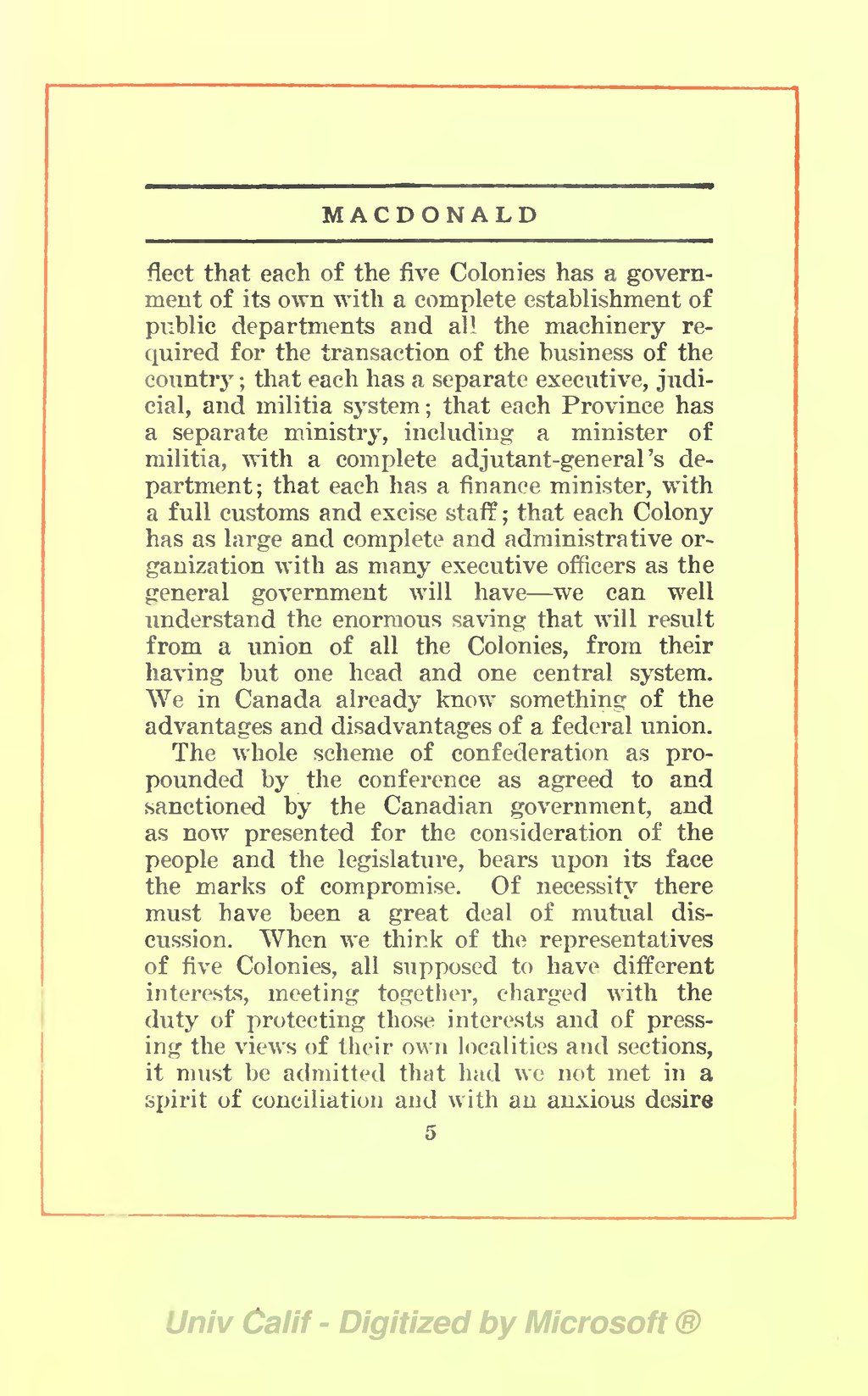flect that each of the five Colonies has a government of its own with a complete establishment of public departments and all the machinery required for the transaction of the business of the country; that each has a separate executive, judicial, and militia system; that each Province has a separate ministry, including a minister of militia, with a complete adjutant-general's department; that each has a finance minister, with a full customs and excise staff; that each Colony has as large and complete and administrative organization with as many executive officers as the general government will have—we can well understand the enormous saving that will result from a union of all the Colonies, from their having but one head and one central system. We in Canada already know something of the advantages and disadvantages of a federal union.
The whole scheme of confederation as propounded by the conference as agreed to and sanctioned by the Canadian government, and as now presented for the consideration of the people and the legislature, bears upon its face the marks of compromise. Of necessity there must have been a great deal of mutual discussion. When we think of the representatives of five Colonies, all supposed to have different interests, meeting together, charged with the duty of protecting those interests and of pressing the views of their own localities and sections, it must be admitted that had we not met in a spirit of conciliation and with an anxious desire
